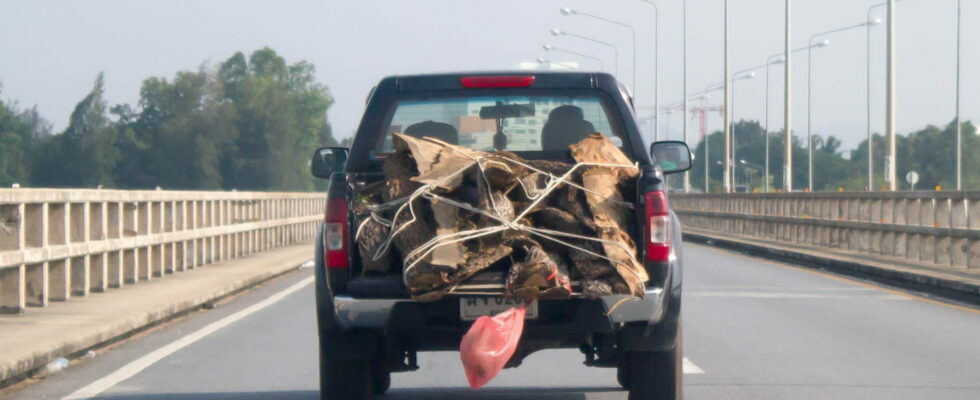What are the risks for drivers who take to the road on holiday with a car that is too heavy?
It’s the same every summer. Since humans like to have everything they need, many vacationers tend to take as much as possible with them when they go away for a few weeks in the sun. The result: the trunk of their car is never big enough and things pile up in every available square centimeter, including on the back seat, the rear shelf and under the passengers’ feet. Once all the luggage is piled up and the doors closed, it’s a done deal! Or so we think.
Because few French people pay attention to it, but it is forbidden to take to the road with a vehicle that is too heavy. Besides, who knows the weight of their car when unloaded and its total authorized weight (PTAC)? However, it is essential to not exceed the regulatory limit and avoid a very unpleasant surprise in the event of a check by the police. If you are looking for it, this information appears on the vehicle registration certificate, the famous gray card, at the level of the marks F2 (PTAC) and G1 (unload weight).

Let’s take the example of a couple with three children traveling in a Renault Espace, the ultimate family vehicle. The latest version of the large SUV, in its entry-level Techno trim in full hybrid, weighs 1622 kilos empty and its GVW is set at 2255 kilos. The difference between the two is 633 kilos (2255-1622). This is therefore the weight that can be added to the car without exceeding the authorized limit. It is important to keep in mind that the weight of the driver and passengers as well as that of any transport equipment (roof bars, bike racks, etc.) must be taken into account. And if the load exceeds the authorized weight – which is possible by stacking very heavy objects – the bill can be very steep.
Driving a vehicle that exceeds the authorized weight is indeed severely punished by law. If your car weighs less than 5% more than the authorized weight, the fine is 135 euros. Between 5 and 20%, the amount is the same but the police can order the immobilization of the vehicle. Beyond 20%, the fine is no longer 4th but 5th class, which increases the painful penalty to 135 to 1,500 euros! Beyond the price to pay, keep in mind that driving an overloaded vehicle is dangerous. Braking, stability and handling are impaired, which greatly increases the risk of having an accident.
